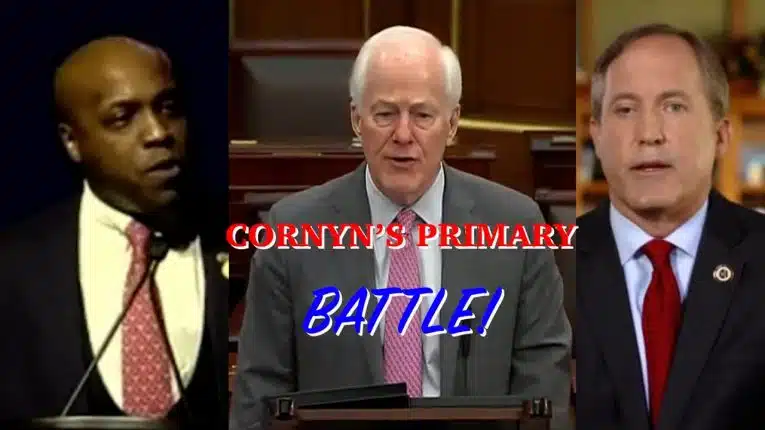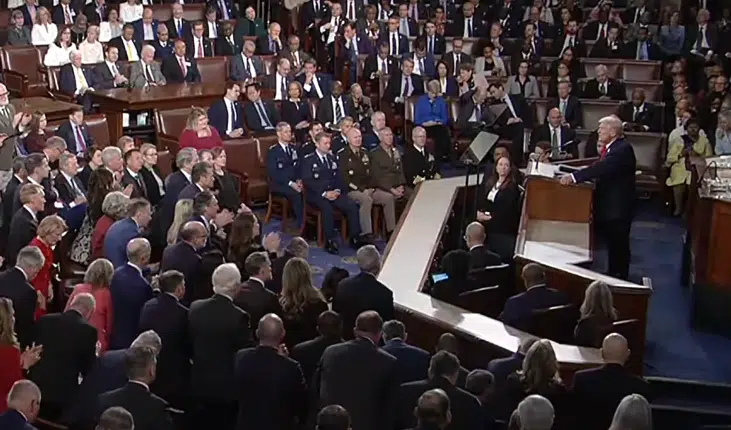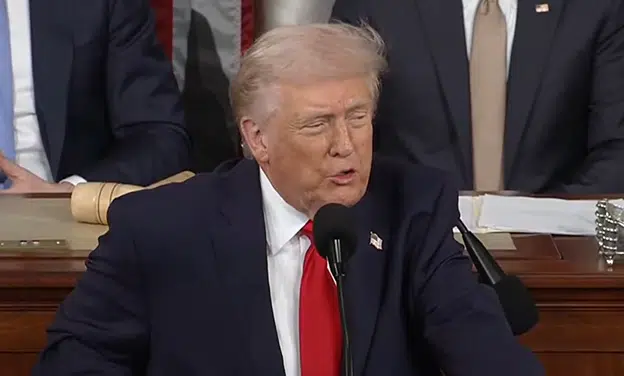By Robert Romano – Since Rule 22 was adopted in 1917 as a way to bring an end to debate by way of a cloture vote (and modified in 1975 lowering the requirement to a three-fifths majority from two-thirds), Republicans have never had a filibuster-proof majority in the Senate. Never.
Yet, in order to cut spending significantly in Washington, D.C., if we are to believe the establishment class, Republicans need to win more elections.
They need to reclaim the White House, win the Senate, and hold the House, we’re told. Moreover, we are led to believe that proposals to reform Medicare — ala House Budget Committee Chairman Paul Ryan — or to use the debt ceiling as leverage to extract spending cuts are nothing more than foils to the GOP’s ascendant electoral aspirations.
But, unless Republicans wind up with a Senate majority larger than, say, 60, does anyone really expect that they could ever achieve the reforms needed to restore order to the nation’s fiscal house?
By design, the bicameral legislative system is supposed to be slow. It’s supposed to be hard to move legislation. And for about 125 years, it was a constraint on the growth of the state. But starting with Woodrow Wilson and then Franklin Roosevelt, the U.S. has, slowly at first and then at lightning speed, expanded federal power to near-absolute levels.
Long gone is the bicameral system and the cooling saucer of the Senate being the way to slow down government’s expansion. Now, it is the means of halting any meaningful reform that might rein in this growing Leviathan. Meanwhile, the voice of the people in the equation is increasingly silenced.
Representative government has been replaced — by the rule of an intellectual elite. Now, unelected, faceless bureaucrats, academics, experts and, importantly, financial institutions have the most prominent role of all in the policy-making process.
The proof is in the pudding.
Today’s sovereign debt bailouts in Europe follow 2008, when firms like Bear Stearns, GM, Chrysler, and AIG are were all saved without any vote in Congress. Under Dodd-Frank, the Federal Deposit Insurance Corporation will administer an unlimited bailout fund, despite public outcry against propping up failed institutions with the public treasury.
Already, here in the U.S., banks depend on the Federal Reserve printing press to pay principal and interest on the debt, an insidious practice that occurs at the sole discretion of Ben Bernanke. Without it, it is likely the U.S. could not sell all of its debt privately — there’s just too much of it.
The national debt is the mechanism for the banks to profit off of Washington’s largesse, via annual gross interest payments that now total $434 billion. So profitable is deficit-spending for the financial sector, the debt has increased every year since 1958, despite overwhelming, generations-long public support for a balanced budget.
By 2021, the current $14.3 trillion national debt will top $26 trillion, raising the specter that the debt will become too large to be refinanced, let alone be repaid.
Mayer Amschel Rothschild, founder of the international banking dynasty, is quoted as saying in 1790, “Permit me to issue and control the money of a nation and I care not who makes the laws.” It was a foreboding prophecy, both here in America, and overseas in Europe, where the banks, and not elected representatives, are determining the direction of whole nations.
Today, in election after election, the people on both sides of the Atlantic have rejected bailouts of financial institutions that bet poorly, whether it be on housing or on sovereign debt.
Yet, the bailouts in Europe continue with seemingly little bearing on public sentiment, as reported by EUObserver.com. Every elected official who promises to force creditors to take any losses on government debt securities winds up powerless and shamed as the banks prevail. This mirrors the U.S. experience since 2008, where failed institutions’ losses have been socialized despite public resistance.
Are these global financial institutions calling the shots? It sure looks that way.
So, even if Republicans manage to reclaim control of all the elected branches of government — so pervasive has been government’s expansion that its unelected branches run by special interests pose the greatest threat to liberty of all.
That is why House Republicans must use the vote on increasing the national debt ceiling to extract spending cuts. It’s the only leverage they have, said Americans for Limited Government President Bill Wilson.
“The debt ceiling is the battle of our time, and will determine whether the nation’s future is one of unsustainable debt, catastrophic default, and decline, like Europe, or one of prosperity, growth, and fiscal prudence,” Wilson said.
But to make that leverage work, Republicans have to be willing not to raise it if the White House and Senate Majority Leader Harry Reid refuse to deal and cut spending significantly. House Speaker John Boehner has proposed that any increase in the debt should be offset by at least that much in spending cuts, a good starting point.
It may be the only way. The alternative, that somehow Republicans win a majority large enough in the Senate to overcome a filibuster while winning the White House, and keeping the House, is fantasy-land — an implausible fairy tale. To break the hold these special interests have on the Republic, and to save the nation from certain insolvency, congressional Republicans have to deal with the world as it is, not as they wish it was.
Robert Romano is the Senior Editor of Americans for Limited Government.






